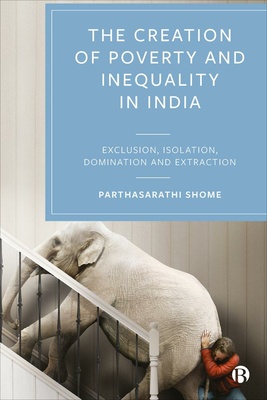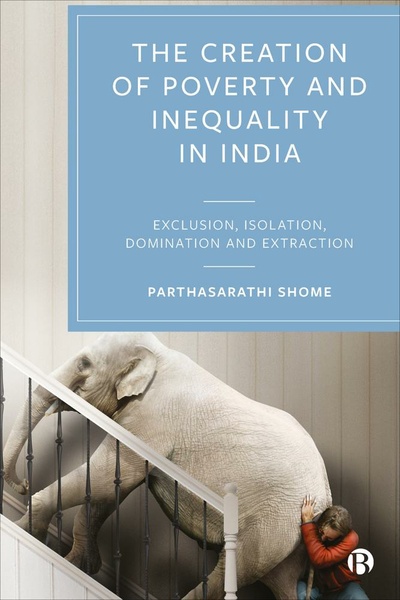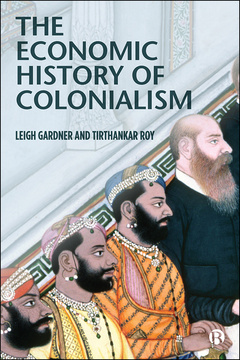The Creation of Poverty and Inequality in India
Exclusion, Isolation, Domination and Extraction
By Parthasarathi Shome
Published
31 May 2023Page count
344 pagesISBN
978-1529230383Dimensions
234 x 156 mmImprint
Bristol University PressPublished
31 May 2023Page count
344 pagesISBN
978-1529230390Dimensions
234 x 156 mmImprint
Bristol University PressPublished
31 May 2023Page count
344 pagesISBN
978-1529230390Dimensions
234 x 156 mmImprint
Bristol University PressPoverty in India is intimately connected with caste, untouchability, colonialism and indentured servitude, inseparable from the international experience of slavery and race.
Focusing on historical and modern practices, this book goes beyond traditional economic approaches to poverty and demonstrates its genesis in exclusion, isolation, domination and extraction resulting in the removal of human and economic rights. Examining cash and asset transfers, as well as the enhancement of women’s rights, primary health and education, it scrutinizes inadequacies in compensatory policies for redressing the balance.
This is an original interdisciplinary contribution that offers bold domestic and international policies anchored in human radicalism to eradicate poverty.
“Shome examines the much-analysed problem of Indian poverty with fresh eyes by marrying Amartya Sen's capability approach to systematic and persistent caste-based marginalization and exclusion. The book shows how, for Dalits who encounter stigma and discrimination, ‘opportunity is actually stolen by the happenstance of birth which is then followed by exclusion’.” Ashwini Deshpande, Ashoka University
Parthasarathi Shome is Visiting Senior Fellow at the International Inequalities Institute of the London School of Economics.
1. Introduction
Part 1: Macro-Economy and Human Development
2. Macro-Economic Indicators: A Backdrop
3. Population, Poverty and Happiness
4. National Income, Human Development and Inequality
Part 2: Sources of Inequality and Poverty
5. Racism, Colonialism and Slavery as International Practices
6. India’s Caste Structure
7. Untouchability: Ambedkar and Early Reformers
Part 3: Sectoral Effects
8. The Rural-Urban Divide
9. Women, Children and Demographic Dividend
10. Nutrition, Health, Sanitation, Water and Climate Change
Part 4: Radical Humanism
11. Blueprint for Addressing Poverty and Inequality










